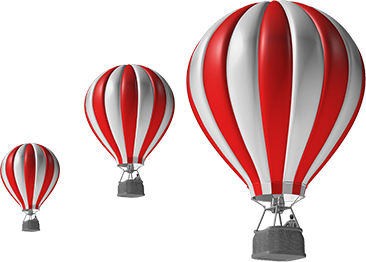

OVERVIEW
These Business Excellence Models (BEMs) are used by organisations to assess and improve their work practices and performance. Fruther help organisations structure their thoughts and focus to increase performance and productivity.
Business excellence models have been developed by national bodies as a basis for award programs. For most of these bodies, the awards themselves are secondary in importance to the wide-spread take up of the concepts of business excellence, which ultimately lead to improved national economic performance.
India has four Business Excellence awards.
- Golden Peacock National Quality Award
- CII – EXIM Bank Award for Business Excellence ( EFQM Model)
- Rajiv Gandhi National Quality Award
- IMC Ramkrishna Bajaj National Quality Award
- QCI _ D.L. SHAH QUALITY AWARD
Golden Peacock Business Excellence Award (GPBEA)
Golden Peacock Awards, instituted by the Institute of Directors (IOD), India in 1991, are now regarded as a benchmark of Corporate Excellence worldwide.
No other Business Award today receives the kind of recognition and adulation among peers that Golden Peacock does.
Golden Peacock Business Excellence Award seeks to characterize validated best management practices, as a basis for accelerating the rate of organizational improvement. Golden Peacock Awards Secretariat (GPAS) has great pleasure in inviting applications for Golden Peacock Business Excellence Award. Business Excellence Award Scheme has been instituted by the Institute Of Directors in November 2012 to encourage Business Excellence improvements in both manufacturing as well as service organizations in India including :- Public and private undertakings
- All sectors of industry, service and commerce
- Government and Semi-Government departments
- Trade and professional associations
- Educational, Healthcare, Hospitality and Research Establishments
CII – EXIM Bank Award for Business Excellence (EFQM Model)
CII and Export Import Bank of India have, in 1994, jointly established the CII-EXIM Bank Award for Business Excellence, with the aim of enhancing the Competitiveness of India Inc. The Award is based on the internationally recognized EFQM Excellence Model.
The Excellence Model provides a holistic management framework to organizations to achieve Excellence. A large number of organizations have successfully used this model to- Define Excellence as a common language across the organization
- Develop an integrated approach for achieving sustainable competitiveness
- Review and improve Strategy, Processes and Performance
- Identify and share good practices
- Helps build functional managers into Business Leaders
The following types of organizations are eligible to participate in the Award programme:
- Large Business Organizations
- Operating Units of Large Business Organizations
- Small and Medium Business Organizations
Rajiv Gandhi National Quality Award
The Rajiv Gandhi National Quality Award is the national quality award given by the Bureau of Indian Standards to Indian organizations that show excellence in their performance. It is named after Rajiv Gandhi, the former Prime Minister of India, and was introduced in 1991 after his death.
The award aims to promote quality services to the consumers and to give special recognition to organizations that contribute significantly towards the quality movement of India.The award is presented to organizations in five broad categories: large scale manufacturing, small scale manufacturing, large scale service sector, small scale service sector and best overall. Furthermore, there are 14 commendation certificates for organizations showing excellence in various fields, including but not limited to biotechnology, chemicals, electronics, food and drugs, metallurgy, textiles, jewelry, education, finance, healthcare and information technology.
The assessment for large scale organization will be made on the basis of nine parameters, namely, Leadership; Policies, Objectives and strategies; human resource management; Resources; Processes; Customer focused results; Employees’ satisfaction, Impact on environment and society; and Business results.
The assessment for small, micro and medium scale organization will be made on the basis of six parameters, namely, Leadership; Human resource management; Processes; Customer focused results; Impact on environment and society; and Business results.
Emphasis will be placed on quality achievement and quality improvement as demonstrated through the information provided by applicant organization.
IMC Ramkrishna Bajaj National Quality Award
Started in 1995 the IMC Ramakrishna Bajaj National Quality Award Trust is a jointinitiative of the IMC Chamber of Commerce & Industry and the House of Bajaj. The firstAward Cycle began in 1997.At the IMC we see the Ramkrishna Bajaj National Quality Award (RBNQA) program as nation-building exercise. The IMC RBNQ Award process reaches out to Indianorganizations across the country – over 600 organizations from North, South, West and East of India have expressed their intent to apply. More than 400 organizations have gone through the entire evaluation process to achieve various levels of recognition. The IMC RBNQA Criteria for Performance Excellence believes in a holistic approach towards achieving organizational excellence. The universal standards and best practices embedded in the IMC RBNQA criteria have transformed Indian leaders into accepting the pivotal roles of customers and workforce in driving world-class processes. The criteria have also enabled top management to action principle-centered leadership for performance excellence.
IMC RBNQA Core Values and Concepts
The Criteria are built on the following set ofinterrelated core values and concepts:
- Visionary leadership
- Customer-driven excellence
- Organizational and personal learning
- Valuing workforce members and partners
- Agility
- Focus on the future
- Managing for innovation
- Management by fact
- Societal responsibility
- Focus on results and creating value
- Systems perspective
These values and concepts, described below, areembedded beliefs and behaviors found in high-performing organizations. They are the foundation for integrating key performance and operational requirements within a results-oriented framework that creates a basis for action and feedback.
IMC RBNQA Criteria for Performance Excellence Framework
The Core Values and Concepts are embodied in seven Categories, as follows:
- Leadership
- Strategic Planning
- Customer Focus
- Measurement, Analysis and Knowledge Management
- Workforce Focus
- Operations Focus
- Results
